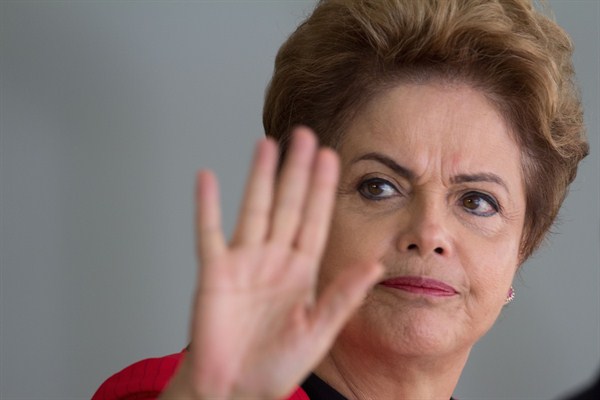Last week, prosecutors in Brazil formally opened an investigation into alleged influence-peddling by former President Luiz Inacio “Lula” da Silva. The popular Brazilian leader is accused of using his position to benefit the Brazilian construction giant Odebrecht, Latin America’s largest engineering firm, between 2011, when he left office, and 2014. The corruption probe is only the latest headache for Lula’s successor, Dilma Rousseff, and a Brazilian political class shaken to the core by the ongoing Petrobras scandal, in which dozens of politicians and businessmen are under investigation for taking over $2.1 billion in kickbacks from the state-owned oil giant. Odebrecht’s CEO was arrested in June for his involvement.
The widespread graft allegations have made Rousseff’s mismanagement of Brazil’s sluggish economy all the more glaring to Brazilians. Her plummeting popularity hit a new low in a poll published Tuesday. Just 7.7 percent of Brazilian respondents approved of her government, down from 10.8 percent in a previous poll in March. It got worse: Nearly 71 percent of respondents rated Rousseff’s government negatively, up from about 65 percent in March, and impeachment calls are growing louder. Almost 63 percent polled now favor impeaching Rousseff over the Petrobras scandal.
The Financial Times put it bluntly: “Incompetence, arrogance and corruption have shattered Brazil’s magic spell.”

